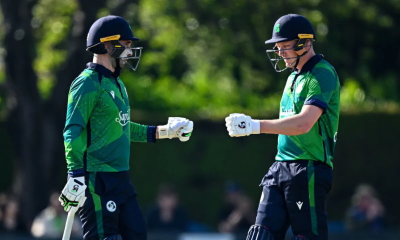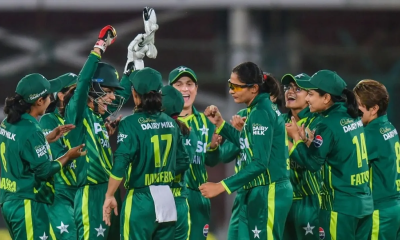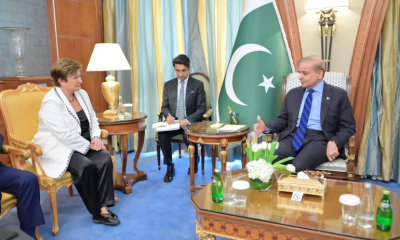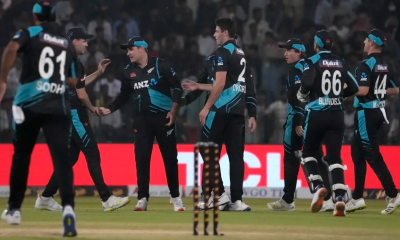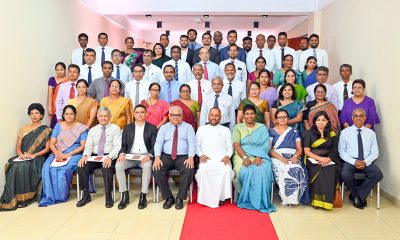Foreign News
At least 10 killed in attack on police station in Pakistan

At least 10 officers have been killed in an hours-long assault on a police station in Pakistan.
The officers lost their lives after more than 30 militants launched the attack in the early hours of Monday. Four others were injured in the two-and-a-half hour battle, Khyber Pakhtunkhwa’s provincial police chief told news agency AFP.
It is not clear who was behind the attack, or if it is related to the election being held on Thursday.
There has been a rise in violence over the last few weeks, including a candidate for the National Assembly being shot dead in another part of Khyber Pakhtunkhwa last Wednesday.
However, Khyber Pakhtunkhwa also has a long history of strikes on government and security targets, as well as civilians, by the Pakistan Taliban, Islamic State and other militant groups. According to Akhtar Hayat Gandapur, the regional police chief, the attacks were launched at about 03:00 local time Monday (22:00 GMT Sunday), first with sniper fire, followed by grenades.
The militants attacked from three different directions, and briefly had control of the police station, he added.
The spectre of violence is already hanging over Pakistan’s voters on Thursday, with the Election Commission of Pakistan categorising half of the country’s 90,675 polling stations as either “sensitive”, meaning there is a risk of violence, or “most sensitive”, indicating a higher risk. The classifications are based on the region’s security situation and history of electoral violence.
However, the issue is also at the forefront of voters’ minds amid recent rises in attacks and counter-attacks.
According to the Islamabad-based Center for Research and Security Studies (CRSS), 2023 saw the number of violent incidents across the country increase for the third year in a row, with the most recorded fatalities – including security forces, militants and civilians – since 2017.
Khyber Pakhtunkhwa had the highest number overall, with some 458 attacks and counter-terrorism operations during the course of the year, leading to almost 1,000 deaths.
One senior government official told AFP the province’s southern region was facing a “severe threat”, as militants were beginning “to blend in with civilian populations in urban areas, making it difficult to conduct operations against them”.
Meanwhile, last week in Balochistan, a province in Pakistan’s south-west with the second highest number of attacks and fatalities last year, a political leader was also shot and killed in his party’s election office and a bomb attack following a political rally killed at least four people. The Islamic State claimed responsibility for that attack.
The military also killed 24 militants in an anti-terror operation in Balochistan last week.
(BBC)
Foreign News
Vladimir Putin set to transfer Sergei Shoigu from Russian defence ministry
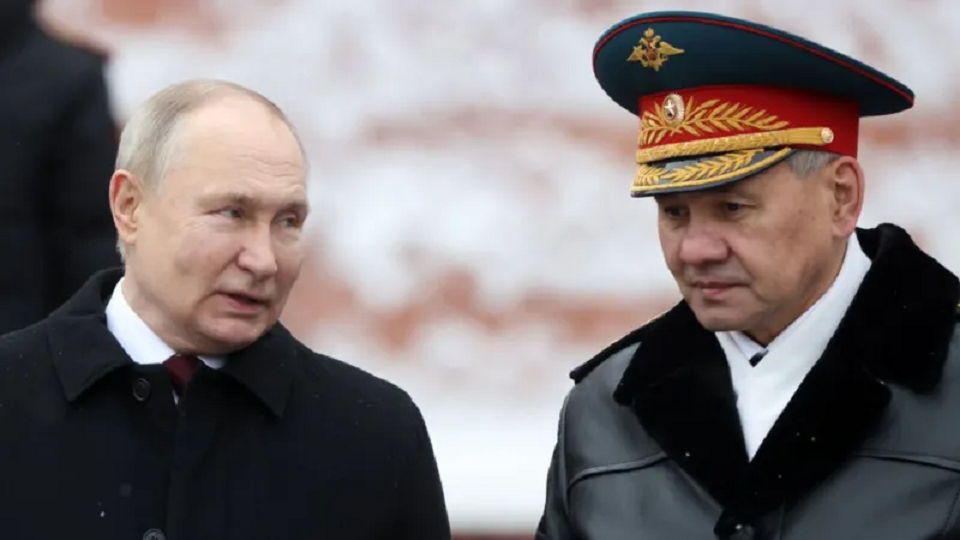
Russian President Vladimir Putin is set to replace his long-standing ally Sergei Shoigu as defence minister, the Kremlin has announced.
The 68-year-old has been in the role since 2012 and is to be appointed the head of Russia’s Security Council.
Papers published by the upper chamber of the Russian parliament said Shoigu will be replaced by Deputy Prime Minister Andrei Belousov.
Mr Shoigu has played a key role in Russia’s war with Ukraine.
Russian government papers show Mr Putin wants Mr Shoigu to take over from Nikolai Patrushev on the powerful security council.
Mr Shoigu has close links with President Putin, often taking him on fishing trips in his native Siberia. He was given the defence portfolio despite having no military background, which rankled with some of his top brass. A civil engineer by profession, Mr Shoigu rose to prominence as the head of the emergencies and disaster relief ministry in the 1990s.
He often looked out of his depth as defence minister, especially after Russia’s full-scale invasion of Ukraine more than two years ago, BBC Europe analyst Danny Aeberhard says.

In 2023, Mr Shoigu became embroiled in a public feud with Wagner mercenary chief Yevgeny Prigozhin over Russia’s conduct of the war. Prigozhin, who led a short-lived mutiny against Moscow, accused Mr Shoigu of being a “dirtbag” and “elderly clown” in audio messages that went viral.
The mercenary chief died in a plane crash while flying from St Petersburg to Moscow in August 2023. The Kremlin denied it was to blame.
Mr Shoigu’s suggested replacement, Mr Belousov, is an economist with little military experience and will come as a surprise to some. But in the view of other analysts, the move indicates that President Putin is seeking to align the Russian economy more closely with the war effort.
Kremlin press spokesman Dmitry Peskov said the proposed appointment of a civilian showed the role of defence minister called for “innovation”. He said Russia was becoming more like the Soviet Union in the mid-1980s, when a high proportion of GDP went on military spending.
As a result, it was necessary to make sure that military expenditure was better integrated into Russia’s overall economy, he added. “The one who is more open to innovations is the one who will be victorious on the battlefield,” he said, according to Reuters.
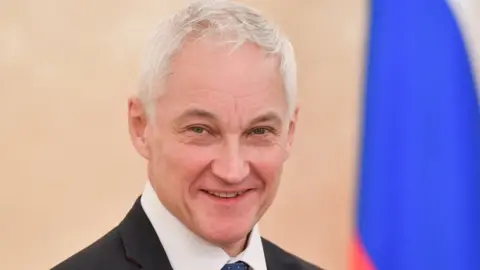
BBC Russia editor Steve Rosenberg said the replacement of Mr Shoigu did not come as a surprise, since his position had become weaker and there had been talk for some time that he could lose his job. Russia’s campaign in Ukraine has been plagued by military setbacks and big losses in men and materiel.
Having an economist as defence minister reflects the changing priorities of the Kremlin, Steve Rosenberg says. The Russian economy is on a war footing now, so it is vital that the defence ministry has enough money to fund the war.
According to unnamed government officials quoted by independent Russian website The Bell, Mr Belousov is seen as a “hard-line defender of the state, who believes that Russia is encircled by enemies”.
Like President Putin, he is close to the Russian Orthodox church. He is said to be a keen martial arts enthusiast who practised karate and the Russian combat sport sambo in his youth.
Before becoming deputy prime minister, he worked for several years as an aide to Mr Putin. Before that, he was economic development minister.
He was reportedly the only member of the president’s economic entourage to support the annexation of Crimea in 2014.
Mr Putin was sworn in as president for a fifth time on Tuesday after winning Russia’s recent election with 87% of the vote and without facing any credible opponents. He has led Russia since May 2000.
Among cabinet members to keep their positions is veteran Foreign Minister Sergei Lavrov.
(BBC)
Foreign News
Political turmoil in Kuwait as emir dissolves parliament
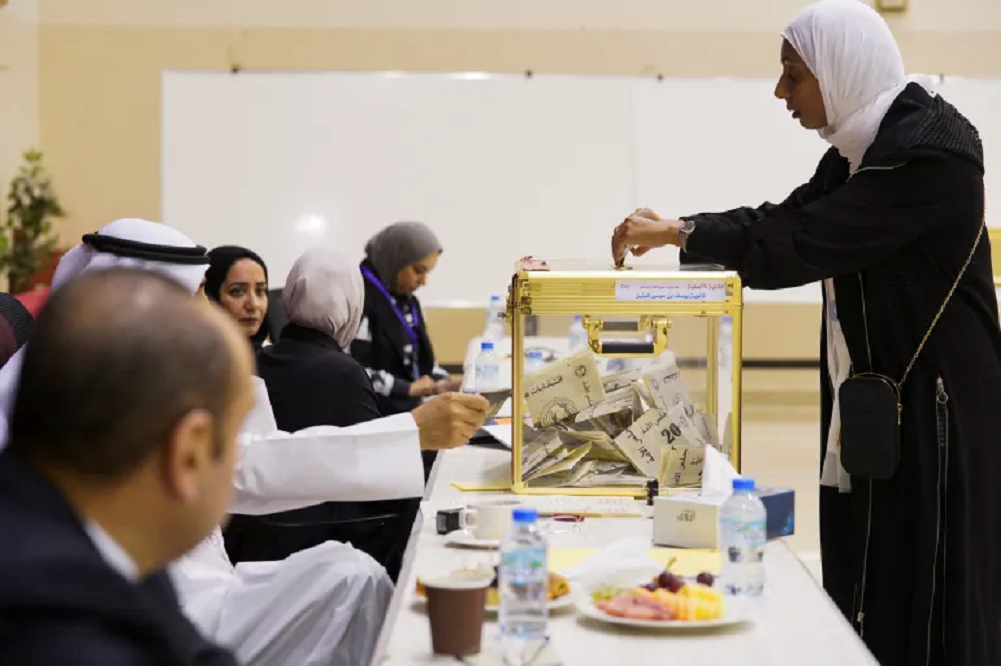
Kuwait’s emir has dissolved the parliament and taken over some of its duties, state media reported, weeks after the Gulf country held elections.
Emir Sheikh Mishal al-Ahmad al-Sabah and the royal-appointed cabinet will assume some powers of the 50-member National Assembly, he said on Friday, in an address broadcast on state television.
He also suspended some unspecified articles of the constitution for “a period of no more than four years”, without elaborating.
“The unhealthy atmosphere experienced by Kuwait in previous years has encouraged the spread of corruption to reach most state facilities, and unfortunately it reached the security and economic institutions,” the 83-year-old ruler said, adding that “it has even affected the justice system”.
“We have faced difficulties and obstacles that cannot be tolerated,” he said.
The elections in April were the first to be held under Sheikh Mishal, who came to power last December after the death of his half-brother and predecessor, Sheikh Nawaf al-Ahmad al-Jaber al-Sabah.
Repeated disputes between the National Assembly and the cabinet have triggered dissolutions of parliament, curtailing investment and reforms aimed at reducing the country’s reliance on oil revenue.
Parliament was to meet for the first time on Monday, but several politicians had refused to participate in the government.
The emir said that the failure to form a government was the result of “the dictates and conditions of some” legislators. “Kuwait has been through some hard times lately … which leaves no room for hesitation or delay in making the difficult decision to save the country and secure its highest interests,” Sheikh Mishal said.
(Aljazeera)
Foreign News
Floods kill 50 people in northern Afghanistan’s Baghlan province
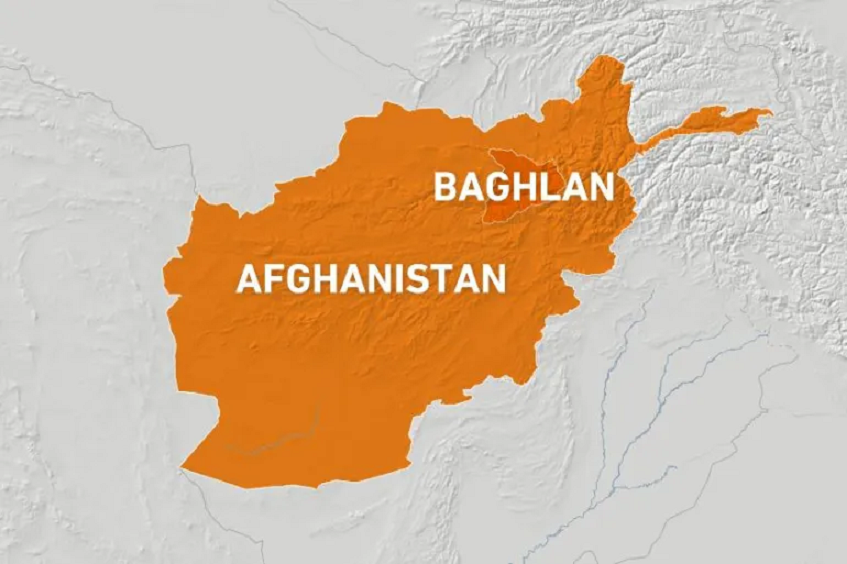
At least 50 people have died in Afghanistan in flooding following heavy rain in the northern province of Baghlan, a spokesman for the Ministry of the Interior said, adding that the death toll may rise.
Ministry spokesman Abdul Mateen Qaniee told the Reuters news agency that there had been flooding in more than five districts in Baghlan after heavy rains, and that some families were stuck and in need of urgent help.
He added that two heavy storms had been predicted for Friday night. “The Ministry of Interior has sent teams and helicopters to the area, but due to a shortage of night vision lights in helicopters, the operation may not be successful,” he said.
The toll was confirmed by local official Hedayatullah Hamdard, the head of the provincial natural disaster management department, who also told AFP that the death toll could rise. Hamdard explained that heavy seasonal rains caused the flooding, and residents were unprepared for the sudden rush of water.
Since mid-April, flash flooding and other floods have left about 100 people dead in 10 of Afghanistan’s provinces, with no region entirely spared, according to authorities.
Farmland has been swamped in a country where 80 percent of the more than 40 million people depend on agriculture to survive.
Afghanistan – which had a relatively dry winter, making it more difficult for the soil to absorb rainfall – is particularly vulnerable to climate change.
The nation, ravaged by four decades of war, is one of the poorest in the world and, according to scientists, one of the worst prepared to face the consequences of global warming.
Afghanistan, which is responsible for only 0.06 percent of the world’s greenhouse gas emissions, ranks sixth on the list of countries most at risk from climate change, experts have said.
(Aljazeera)
-

 Business4 days ago
Business4 days agoDialog Axiata renews pledge to GSMA’s Connected Women Commitment Initiative
-

 Business3 days ago
Business3 days agoGlobal automakers increase assembly operations in Sri Lanka
-

 Sports4 days ago
Sports4 days agoNestle Milo empowers Sri Lanka’s future football stars
-

 Sports4 days ago
Sports4 days agoDialog Powers National Para Athletics Championship 2024
-

 Business5 days ago
Business5 days agoUnilever Sri Lanka and Ministry of Agriculture & Plantation Industries sign MOU on sustainable tea production
-

 Business5 days ago
Business5 days agoNestlé Lanka partners with Commercial Bank to drive sustainable dairy farming
-

 Features7 days ago
Features7 days agoThe return of Japan is a victory
-

 Features7 days ago
Features7 days agoUnforgettable memories … in Zambia




